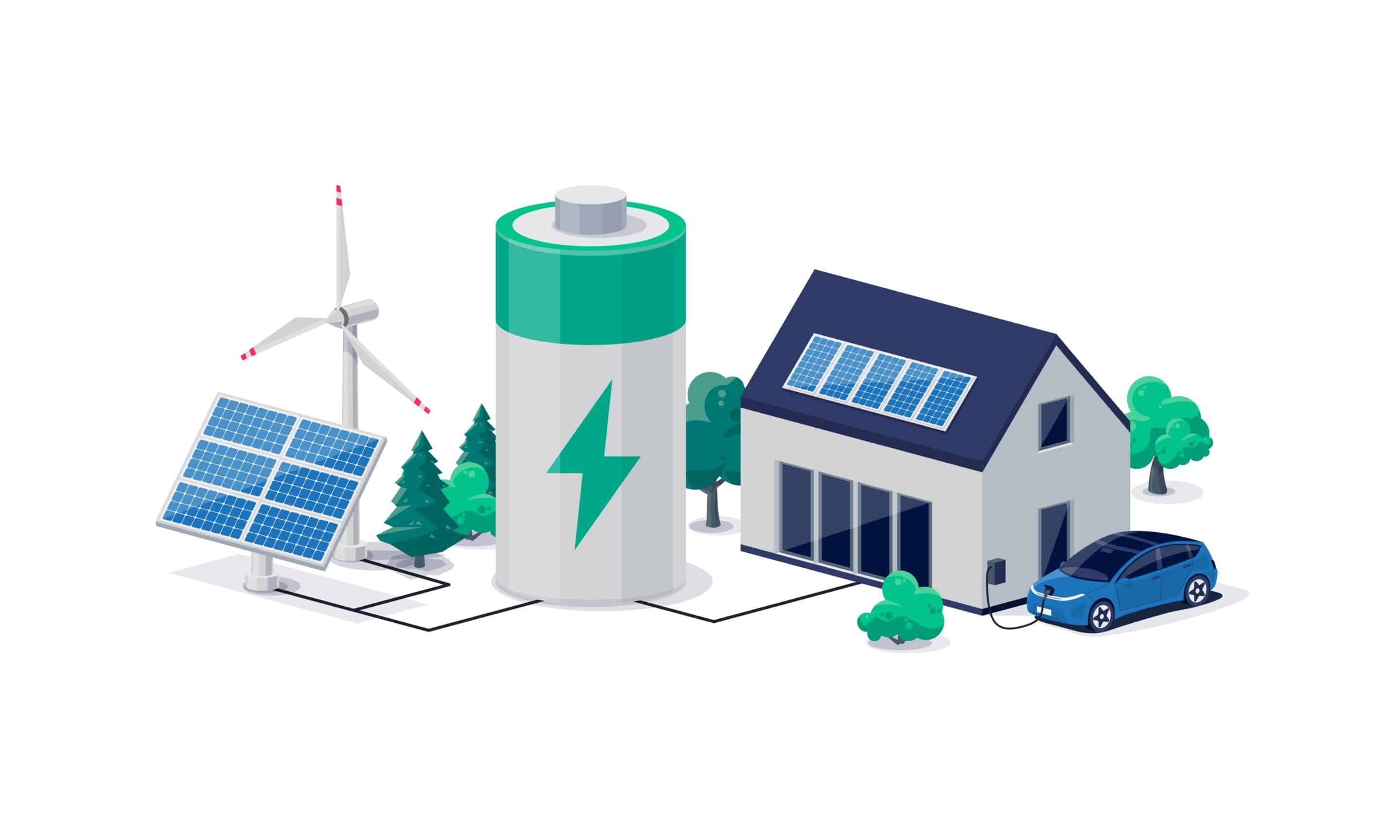
Solar Engineering: Harnessing Renewable Energy for a More Sustainable Future
Over the last decade, the advances in solar engineering have been significant. The US government has set a goal to achieve 100% carbon pollution-free electricity by 2035. The resulting Federal Solar Energy Credit offers substantial incentives to Americans investing in residential and commercial solar power engineering solutions, which has given rise to an industry boom.
Rapid investment in solar technology has made renewable power more affordable and widespread than ever before, with an estimated 70,000 solar panels installed every hour worldwide. The demand for solar engineers has risen sharply in line with the increased demand for solar systems and installations. But, precisely what is solar panel engineering, what does a solar engineer do, and what are the benefits of going solar? In this comprehensive guide, we’ll cover everything you need to know.
What is Solar Engineering?
Solar engineering is a sector of engineering that focuses on the design, development, and implementation of technologies that harness the power of the sun to generate energy. The ultimate goal is to reduce reliance on fossil fuels and mitigate the impacts of climate change.
However, the solar sector encompasses much more than just the panels we’ve become accustomed to seeing on residential and commercial buildings in our local neighborhoods and nationwide. The field of solar power engineering covers everything from developing solar power plants to designing, testing, producing, and implementing various solar-powered technologies, including panels, heating and cooling systems, communications and navigation systems — and even solar-powered cars.

What is a Solar Engineer?
Solar engineers design panels and solar energy systems that collect and store energy from the sun and convert it into electricity. They usually have comprehensive knowledge covering many different areas of engineering because the journey from design and development to installation and implementation incorporates several disciplines.
The specialty field of any given solar engineer will depend on where in the supply chain they operate. However, as a general rule, most solar experts are well versed in the founding principles of
- Material engineering – Using raw materials to create computer chips, metal for solar panel mounts, and batteries, etc.
- Chemical engineering – Studying the flow of energy is essential in making solar energy solutions efficient, affordable, and sustainable.
- Electrical engineering – Electrical circuits are the lifeblood of any solar system.
- Industrial engineering – Mathematical models are required to design quality-controlled manufacturing and information systems.
- Mechanical engineering – The parts of each solar energy system must work together efficiently and in synergy.
What Does a Solar Engineer Do?
Solar engineers work with homeowners, businesses, and local authorities to design, plan, and implement solar energy projects.
Most people consider solar engineers as the rep that meets them for customer consultation when considering going solar — and many companies use qualified solar engineers for those positions. These on-site solar engineers conduct customer consultations, site assessments, and financial analyses to assess the viability and value of implementing solar energy systems. Engineers are usually also heavily involved in advising on best practices for installation, maintenance, and repairs.
However, it’s commonplace for solar engineers to do as much work behind the scenes – if not more – than they do in client-facing roles. The comprehensive list of responsibilities across the supply chain is extensive and includes:
- Researching and developing new solar panel engineering technologies
- Creating diagrams and documentation for proposed solar projects
- Conducting feasibility studies to determine the viability of a solar energy project
- Producing and analyzing solar system designs for simulation and testing
- Using computer-aided design (CAD) software to plan solar system layouts
- Constructing photovoltaic (PV) panels
- Reviewing plans and safety procedures for solar installations
- Coordinating the layout of panels, inverters, and electrical components
- Calculating ways to optimize electricity production
- Testing and monitoring solar systems
- Researching ways to improve efficiency and performance
- Conducting financial reviews
- Ensuring regulatory compliance
- Reporting on the efficiency and safety of solar projects
- Being on call to deal with maintenance, outages, and emergencies
What is a Typical Solar Engineer’s Salary?
While solar engineering is not listed as an occupation on the US Bureau of Labor Statistics website, the role of the solar photovoltaic installer is. However, PV installers do not have solar engineering degrees and are not as skilled or experienced in engineering, so there are better guidelines. Recruitment sites have much more detailed data. For example, ZipRecruiter has published 2023 statistics revealing that:
- Annual solar engineering salaries range from a low of $50,000 to a high of $165,500
- The majority of salaries range between $61,500 (25th percentile) to $100,000 (75th percentile)
- The average engineer salary in the solar sector varies by as much as $38,500, suggesting significant differences in compensation based on skill level, location, and years of experience
- The highest-paid solar power engineering jobs are based in California
What is the Job Demand for Solar Engineers?
Solar installations are increasingly commonplace, and the role of PV installer has become the fastest-growing job in America. That, in turn, has created numerous job opportunities for solar engineers in both private and public sectors.
According to the Solar Energy Industries Association (SEIA), the number of jobs in the solar industry has grown exponentially. Currently, the number of US-based solar engineering positions on LinkedIn alone is 46,990. These roles span specialty areas for engineer positions in construction, development, manufacturing, and O&M (operations and maintenance).
The job demand for solar engineers is expected to increase even further in the coming years, driven by the high demand for renewable energy and the need to eliminate greenhouse gas emissions and reduce the nation’s carbon footprint.
Where Do Solar Engineers Work?
While on-site visits may be the most common point of contact for residential and commercial solar power engineering clients, many solar engineers work in offices. However, it’s not usual for them to conduct regular site visits, assessments, and inspections, making travel a significant part of the job.
The most experienced and sought-after solar engineers may travel internationally, as many other countries have also set ambitious renewable energy targets. For example, the European Commission aims to increase the share of renewable energy consumption to 32% by 2030.
On a national level, there are solar projects in various phases of development in every state. While California is the largest solar employer, there are opportunities in solar engineering nationwide. Across New Jersey and Pennsylvania, where the EMT team operates, solar solutions are an excellent investment, and there are plenty of opportunities for solar engineers.
That is primarily because the price of solar panels has fallen by more than 80% over the last decade. Plus, the 30% subsidy and new metering laws of the federal solar tax credit system provide a significant financial incentive for residential and commercial clients.
The Best Solar Engineering Degrees
To get into solar engineering as a profession, the minimum requirements are a bachelor’s degree in engineering. While a few years ago, solar engineering degrees as a discipline in their own right were relatively few and far between, they are now commonplace at many of the country’s leading colleges and universities.
Solar Engineering Degrees
Courses that concentrate specifically on solar energy give students comprehensive knowledge and insight into the entire supply chain and inner workings of the industry. Core modules and electives include planning, technology development, system design, system analysis, quality control, life cycle analysis, policy, and legislation. The list of leading universities for renewable energy programs includes:
- Pennsylvania State University
- North Carolina State University
- Oregon Institute of Technology
- the University of Michigan
- Massachusetts Institute of Technology
- Stanford University
One of the primary texts that students study (regardless of the educational institution attended) will likely be “Solar Energy Engineering: Processes and Systems” by Soteris A. Kalogirou, a renowned expert with over thirty years of experience in renewable energy systems and applications.
However, enrolling directly in a solar-focused course is optional for those seeking work in the industry after graduation. It’s also possible to take an alternative engineering course first and then convert to a solar engineering focus.
Alternative Engineering Degrees
Mechanical and electrical engineering degrees are the most common route to transitioning into work in the solar sector. However, industrial engineering, chemical engineering, and computer software engineering qualifications can also be beneficial.
In addition to an ABET-accredited engineering degree, many top employers require solar engineers to have a Professional Engineer (PE) or Engineer in Training (EIT) license, which means:
- Passing the Fundamentals of Engineering (FE) exam or Professional Engineering (PE) exam
- Gaining at least four years of relevant work experience
In some states, solar engineers are required to participate in further professional development activities to maintain their licenses.

The Benefits of Using Solar Panels
There are several reasons why going solar is a smart move from financial, environmental, and practical perspectives. There are some additional brand benefits for commercial and industrial projects too. Let’s take a comprehensive look at the advantages in more depth.
The Financial Benefits of Solar
The main financial advantages of solar panel engineering lie in reduced utility bills, discounts on installation via the Federal Solar Tax Credit, and increased property value.
Reduced Energy Bills
Electricity costs account for a significant chunk of monthly utility expenses for home and business owners. Installing solar panels allows you to generate free power to significantly reduce your outgoings, leaving you with more cash each month to reinvest, save, or spend on hobbies, entertainment, holidays, etc. In terms of a dollar amount, it’s estimated an average American household spending $125 a month on energy bills could save up to $1,500 a year by installing a robust solar system.
The Federal Solar Tax Credit
The Federal Solar Energy Credit allows credit to be claimed against federal income taxes to cover up to 30% of solar project installation costs. The policy applies to both residential and commercial clients. Plus, although the percentage of credit is capped, there is no maximum amount you can claim back. Clients committing to larger-scale projects will therefore receive more significant installation discounts. An additional incentive for commercial projects is that businesses can roll the credit forward into future tax periods (for up to 20 years!) in circumstances where their tax credit exceeds tax liabilities.
Increased Property Value
Research shows that homes with solar power sell for up to 4.1% more than those without, proving that installing solar is an effective way to increase property value. The National Renewable Energy Laboratory estimates that for every dollar a solar panel saves on electricity bills, the value of a property will increase by $20. Let’s say your annual utility saving is $1,000 on average. That equates to a yearly property value increase of $20,000.
The Environmental Benefits of Solar
In today’s modern world, most individuals and businesses understand the need to reduce their carbon footprint. The issue of climate change and ways to mitigate it has become a hot topic of conversation across the country at dinner tables and board room meetings alike.
Compared to burning fossil fuels, renewable power sources like solar are much cleaner and more sustainable because generating energy via solar engineering doesn’t emit greenhouse gases or carbon emissions. Installing solar panels removes the need to buy power from the carbon-emitting grid, thus reducing your impact. In some states, earning additional income through net metering is possible — a practice that allows you to sell excess energy from your solar system back to the grid.
The Practical Advantages of Solar
Not only do solar panels have the potential to save – and make – you money, they are a more reliable power source than the energy obtained from the grid and are typically easier to maintain and repair.
Avoid Blackouts
Power outages are rare for most Americans, but occasional blackouts are inevitable. The electricity grid sometimes shuts down due to extreme weather, equipment failure, human error, animal interference, or excess demand. Your solar system will be offline as long as the grid is down — there’s no way around that. However, by investing in a project that includes battery storage, you can divert excess energy so you’ll always have some in reserve to power your home or business until the grid returns.
Hassle-free Maintenance
Aside from replacing the inverter every 15 years, there is very little maintenance involved in running a solar system. Solar engineers have designed them to operate efficiently without needing moving parts that can seize up or become blocked with dirt, dust, or debris. Regular cleaning is essential, but aside from that, most well-designed solar projects can run for several years with little need for additional maintenance or repairs.

The Commercial Benefits of Solar
Depending on your industry of operation, your organization may uncover additional solar advantages when you switch to solar. For example, solar energy can generate heat for a wide variety of industrial processes, including:
- Enhanced oil recovery
- Water desalination
- Food processing
- Mineral processing
- Chemical production
Plus, there are additional brand benefits that apply to any business, regardless of sector.
Industry Leadership
Going solar reflects well on your company because it promotes your dedication to achieving positive environmental change. When clients and customers see you implementing cleaner, greener energy solutions, they will have positive experiences with your brand, making building a base of loyal brand ambassadors easier.
Demonstrating corporate social responsibility (CSR) is essential in today’s competitive commercial landscape because consumers are becoming increasingly ethically minded. A report in Forbes suggests that 52% of consumers consider a company’s values when making a purchase. Publicizing your commitment to solar is a great unique selling point for targeting environmentally-conscious consumers.
It’s also essential to consider CSR from an internal standpoint. Being an environmentally responsible organization may single you out as an employer of choice, helping you to attract, onboard, and retain top talent from the broadest pool of candidates.
Supporting the Local Economy
Going solar allows homeowners and commercial businesses to keep their energy sources local rather than paying excessive bills to national corporations. By giving your business to local solar firms, you directly contribute to the local economy by supporting the local job market, which boosts the economy for everyone.
Make Going Solar Simple with EMT Solar and Roofing
Looking for solar panel installation in New Jersey or Pennsylvania? At EMT Solar and Roofing, we have the best solar engineers who work tirelessly to design, install, and implement the perfect clean energy system for your residential, industrial, or commercial property. No matter your interest in solar, we want to work with you!
When you collaborate with one of our experienced engineers, solar panels that generate electricity efficiently while improving your structure’s safety, security, and long-term quality are a guarantee. We make solar simple by providing state-of-the-art solar engineering products that are built to last and are durable, powerful, and easy to maintain. No job is too big or too small! We guarantee a high-quality experience with minimum disruption, and as a GAF Certified Master Elite Contractor, we offer the best warranties available.
Whether you’re looking for general information about solar panel engineering solutions, a video consultation, or an upgrade for your existing solar module, we can help. Contact us or get your free quote today, and say hello to a greener cleaner tomorrow.
